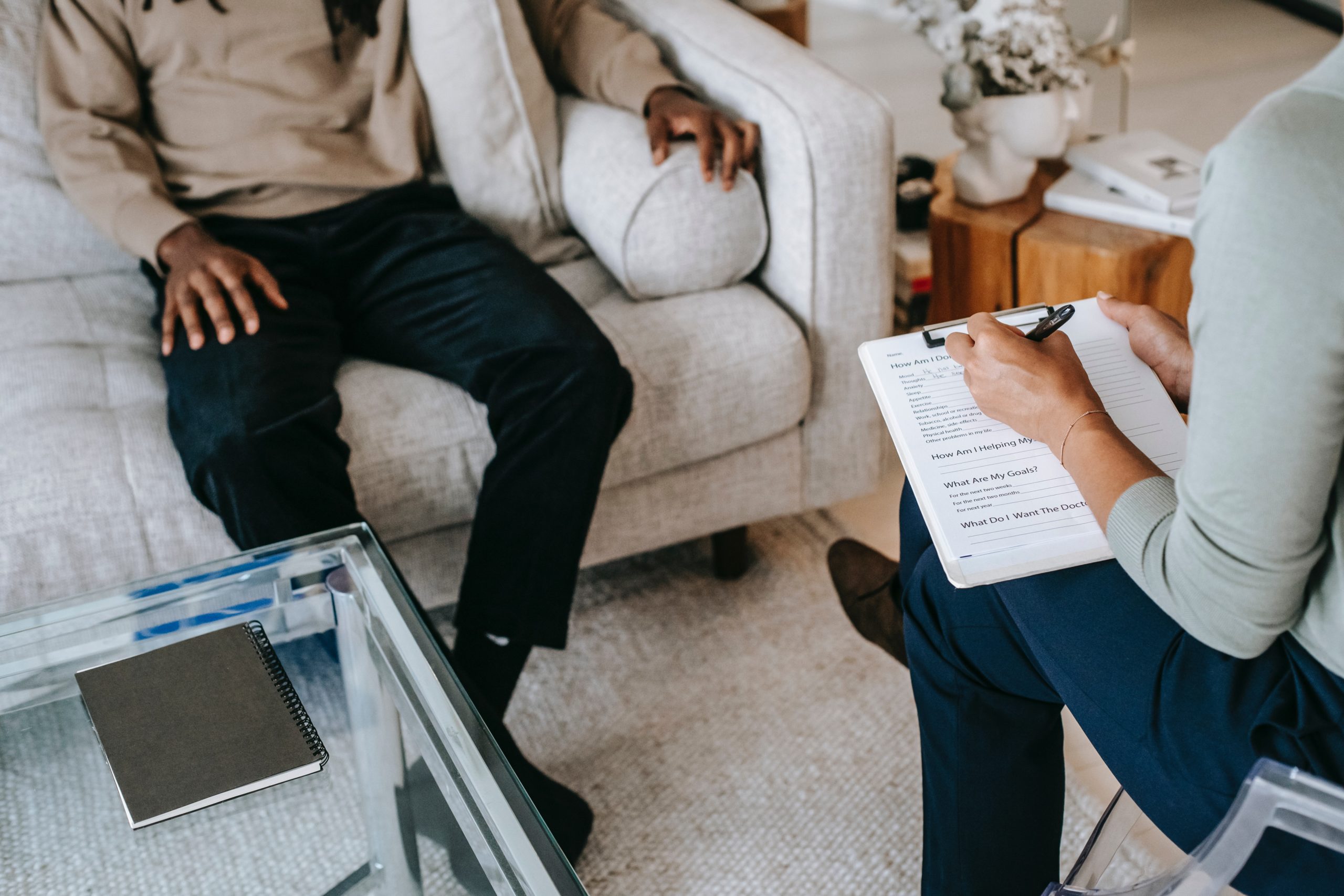Marriage counseling is a valuable resource for couples who are facing challenges in their relationship or looking to prevent certain problems. Whether you’re dealing with communication issues or disagreements or just need help to navigate the ups and downs of married life, a good marriage counselor can help you find the support and guidance you need. But how do you find the right counselor for you? Look no further; we’ve gathered a few tips to help you find the best marriage counselor for you and your partner.
Types of counseling
Your first step to finding the perfect marriage counselor should be to understand what type of therapy you want to engage in. There is traditional one-on-one counseling, and there are also alternative counseling options available for couples, such as group counseling, couples workshops, and online counseling. There are also several different approaches and techniques that counselors may use within the therapy sessions. Here are some of those approaches:
Cognitive-behavioral therapy (CBT)
This approach focuses on changing negative thoughts and behaviors that are contributing to relationship problems. CBT can help couples improve communication, increase empathy, and reduce conflict.
Emotionally-focused therapy (EFT)
This approach focuses on the emotional connection between partners and helps couples identify and address the underlying emotional needs that are driving relationship problems.
Imago therapy
This approach focuses on improving communication and resolving conflicts by helping couples understand and appreciate each other’s perspectives. In other words, it helps turn marital conflict into healing and growth opportunities.
Systemic therapy
This approach focuses on the relationship as a whole rather than individual problems. Systemic therapy can help couples understand the patterns and dynamics that are contributing to relationship problems and find new ways of interacting and communicating.
Structural family therapy
This approach views relationship problems as stemming from broader family dynamics and works to change these dynamics in order to improve the relationship.
Research potential counselors
Next up: who should be your actual counselor? One of the most important steps in finding the right marriage counselor is researching potential counselors in your area. Here are some top factors to consider when researching potential counselors:
Credentials
Make sure the counselor you choose is licensed and has the necessary education and training to provide marriage counseling. Look for a counselor who is licensed in your state, and check their credentials and qualifications.
Specialties
Different counselors may have different specialties and areas of expertise, so it’s important to look for a counselor who has experience in the type of issues you’re facing. For example, if you’re dealing with communication problems, look for a counselor who specializes in communication and conflict resolution. If there are substance abuse issues, you might choose a counselor with an addiction and substance abuse specialty.
Approach
Different counselors may have different approaches to counseling, so it’s important to choose a counselor whose approach resonates with you. For example, some counselors may use a more directive approach, while others may use a more collaborative approach. If you’re interested in specific types of therapy, like CBT, then make sure the counselor you choose does this.
Availability
Consider the counselor’s availability when researching potential counselors. Make sure the counselor you choose has flexible scheduling options and is available when you need them. Can you only do sessions on the weekends? You should make sure they are available on Saturdays and Sundays!
Reviews
Read reviews from other couples who have worked with the counselor you’re interested in. This can give you a better sense of their experience and the results they achieved.
By taking the time to research potential marriage counselors, you can find a counselor who is well-suited to your needs and has the experience and approach that you’re looking for. This will help make sure that you get the most out of your counseling sessions and make the most progress in your relationship.
Consider your budget
Marriage counseling can be an effective way to improve your relationship, but it can also be expensive. Don’t forget about your budget when choosing a counselor, as fees can vary widely depending on the counselor’s experience, location, and type of therapy they practice.
Insurance coverage
Some insurance plans may cover the cost of marriage counseling, so be sure to check with your insurance provider to see what’s covered. Some counselors may also accept insurance, so be sure to ask when you’re making your appointment.
Session cost
Marriage counseling sessions can range from $75 to $200 or more per session, depending on the counselor’s experience and location. Be sure to ask about the cost of sessions when you’re researching potential counselors.
Package deals
Some counselors may offer package deals, which can help you save money in the long run. For example, you may be able to save money by purchasing a package of six or more sessions.
Sliding scale fees
Some counselors may offer sliding scale fees, which allow you to pay a fee that’s based on your income. This can be a good option if you’re on a tight budget.
Out-of-pocket expenses
If your insurance doesn’t cover the cost of marriage counseling, or if you choose a counselor who doesn’t accept insurance, you may need to pay for counseling out of pocket. In this case, be sure to consider your budget and plan accordingly.
By considering your budget and looking for ways to save money, you can ensure that you’re able to get the help you need without putting undue financial stress on yourself or your relationship.
Schedule a consultation
Try before you buy, right? Once you’ve done your research and found a few potential marriage counselors, it’s time to schedule a consultation. A consultation is an opportunity to meet with the counselor and discuss your relationship, your goals, and the counselor’s approach and philosophy. See if your “vibes align” and whether or not you can see yourself discussing hard-hitting topics with this person.
Here are some tips for scheduling a consultation:
Make a list of questions
Before your consultation, make a list of questions that you want to ask the counselor. This can include questions about their approach, experience, and availability, as well as any questions you have about your relationship.
Schedule a time that works for both partners
If both partners are attending the consultation, be sure to schedule a time that works for both of you. This will ensure that you’re both able to attend and that you can both ask the counselor any questions you have.
Consider scheduling a phone or video consultation
If you’re unable to meet with the counselor in person, consider scheduling a phone or video consultation. This can be a good option if you live far or if you have scheduling conflicts.
Prepare for the consultation
Before the consultation, take some time to reflect on your relationship and your goals for marriage counseling. This will help you prepare for your counseling session and make sure you get the most out of them.
Consider the fit
This is all about seeing if you vibe with the counselor’s energy. After you’ve had a consultation with a marriage counselor, it’s important to consider whether or not they’re a good fit for you and your relationship. The fit between you and your counselor is critical because it can have a big impact on how well the counseling actually works.
Here are some things to consider when evaluating the fit between you and your marriage counselor:
Comfort level
Do you feel comfortable talking to the counselor about sensitive and personal issues? If you don’t feel comfortable, it may be difficult to make progress in counseling.
Personal style
Does the counselor’s personal style and approach match your needs and preferences? For example, if you prefer talking with a woman (and your spouse is comfortable with it, too), you may want to take this into consideration.
Availability
Is the counselor available to meet with you at a time that works for you? Consider the counselor’s schedule, office hours, and availability for appointments.
Cost
Can you afford the cost of the counselor’s services? Consider your budget and the fees that the counselor charges.
Experience
Does the counselor have experience working with couples with issues similar to yours? Consider the counselor’s background, education, and experience.
Start counseling
After you’ve had a consultation with a marriage counselor and you’ve made your selection, it’s time to get started! Starting counseling can be an exciting and hopeful time, but it can also be a bit intimidating.
Be open and honest
To get the most out of your counseling sessions, be open and honest about your thoughts, feelings, and concerns. Share as much as you can with your counselor, even if it’s difficult to talk about.

Set goals for counseling
Discuss your goals for counseling with your counselor. This can help you stay focused and interested throughout the process.
Be active participants
Counseling is a collaborative process. Be active participants in your sessions and engage in the activities and exercises that your counselor suggests.
Be patient
Change takes time, and it may not happen overnight. Be patient and persistent, and trust the process.
Communication is key
Communication is key to a successful marriage, and it’s also important in your counseling sessions. Be open and honest with both your counselor and with each other.
Conclusion
Finding a marriage counselor can be a difficult and time-consuming process, but it’s well worth it if you’re committed to improving your relationship. By following these tips, you’re sure to find a counselor who will help you build a stronger, more fulfilling relationship and provide you with the support and guidance you need to overcome the challenges you’re facing.

Nicole Sheehey is the Head of Legal Content at HelloPrenup, and an Illinois licensed attorney. She has a wealth of knowledge and experience when it comes to prenuptial agreements. Nicole has Juris Doctor from John Marshall Law School. She has a deep understanding of the legal and financial implications of prenuptial agreements, and enjoys writing and collaborating with other attorneys on the nuances of the law. Nicole is passionate about helping couples locate the information they need when it comes to prenuptial agreements. You can reach Nicole here: [email protected]

0 Comments